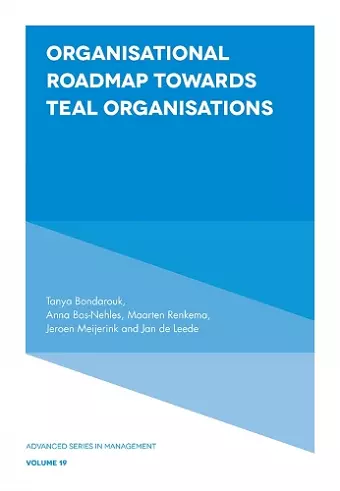Organisational Roadmap Towards Teal Organisations
Tanya Bondarouk author Jeroen Meijerink author Anna Bos-Nehles author Maarten Renkema author Jan de Leede author
Format:Hardback
Publisher:Emerald Publishing Limited
Published:16th Jul '18
Currently unavailable, and unfortunately no date known when it will be back

This volume explores and presents challenges that "traditional" organisations experience once they take off towards self-managing organisations (or Teal Organisations). The concept of Teal Organisations is not surprising nowadays, but strangely enough it remains a dream concept: the majority of modern organisations represent hierarchical managerial constructions, with little to no evidence of self-management.
The main characteristics of self-management are well-known: whole tasks; organisational actors equipped with a certain skill portfolio that is required to accomplish these tasks; work organised in teams that have autonomy for decision-making and performance management. Self-management is often accompanied by greater flexibility, better use of employees' creative capacities, increased quality of work life, and decreased employee absenteeism and turnover, eventually resulting in increased job satisfaction and organizational commitment.
In this volume, we suggest that self-managing teams require a new way forward in modern organisations. Particularly, we offer a new roadmap for leaders who are responsible for the implementation of self-managing teams.
This book examines the transformation in organizations towards self-management teams, team performance, and the organizational and human resources management support they need to work successfully, illustrating that self-managing teams need a new way of organizing, structuring, and leadership in organizations. It discusses self-managing in general and self-managing teams in particular by exploring issues related to opportunities and reasons for working with these teams in modern organizations, focusing on a systematic overview of existing typologies of self-managing teams; the historical literature on self-managing teams since the 1950s; a case of health care teams in long-term and elderly care; the shift in responsibilities of line managers; the governance mechanisms in self-managing teams from theoretical and empirical perspectives; and the changing role of the human resources management function in self-managing teams. -- Annotation ©2018 * (protoview.com) *
ISBN: 9781787563124
Dimensions: unknown
Weight: 588g
288 pages